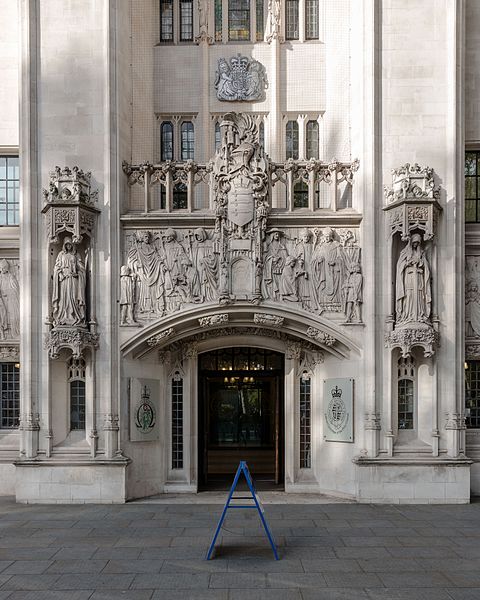The UK Supreme Court has ruled that Scotland cannot hold a new independence referendum without the UK parliament’s approval. In a unanimous judgement, the court argued the matter of an independence referendum was reserved for Westminster, not Holyrood. This leaves nationalist hopes for a second referendum in doubt for now, with a UK government who oppose the holding of another independence vote.
Robert Reed, president of the Supreme Court, argued that “The Scottish Parliament does not have the power to legislate for a referendum on Scottish independence.” The nationalist camp had hoped to avoid this issue, for as Dorothy Bain KC – Scotland’s Lord Advocate, argues, a referendum is purely advisory and not legally demanding of any action.
Scottish National Party leader, Nicola Sturgeon, requested that Bain refer the referendum question to the court back in summer, after the First Minister announced her intent to hold a second referendum on 19 October 2023
Despite this, Reed clarified “it is clear the proposed bill has more than a loose or consequential connection with reserved matters”. Under the current devolution arrangement, the future of the union of the UK is a matter reserved for Westminster, not the national governments.
While this week’s ruling may have put the October 2023 date in doubt, Sturgeon still presents herself as determined to secure a referendum in the not-too-distant future. She announced the SNP’s intention to hold a special party conference in the new year and discuss how to use the next general election as a ‘de facto referendum’ on independence.
How one is supposed to translate the outcome of a general election into a proper mandate for independence is unclear.
Sturgeon posted online, “A law that doesn’t allow Scotland to choose our own future without Westminster consent, exposes as myth any notion of the UK as a voluntary partnership and makes case for Indy”. While this ruling certainly does raise questions about the UK’s current constitutional make-up, it doesn’t necessarily make the case for independence.
All nations have the right to self-determination, and being unable to hold a vote such as this without Westminster’s approval will certainly anger many. However, the SNP intends to use this rage to advance their political interests. In some ways, whether they got a ruling in favour or against did not matter, as having been ruled against gives the party more political ammunition.
It allows them to do exactly what they are doing –– present this decision as furthering the case for independence. Yet, when the SNP talk about independence, it is purely within the bounds of the party’s interests. It is not independence from the big monopolies; it makes no break from the capitalist system. They don’t seek to empower the working masses.
This week’s ruling, then, while highlighting issues with the UK’s current structure, does not in fact further the case for independence. It can just as clearly demonstrate the need for a progressive federal system, one that removes the existing imbalance between the nations of Britain while genuinely serving to empower the working class.
Mia English, is Challenge’s News Editor



